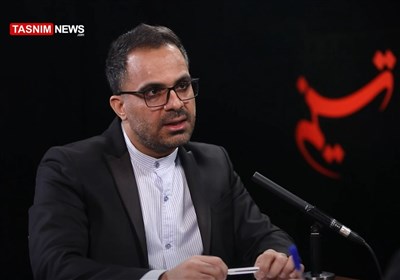Discussion|West Asia will not return to the period before “Al-Aqsa Storm”.

| At the level of the leaders of Iran and Saudi Arabia, there is a conclusion that the battle of Al-Aqsa Storm will not lead to tension between these two regional powers. At the same time, Tehran has put solidarity among the resistance groups, strengthening the deterrence network, and respecting Saudi Arabia's considerations. |
According to the international group Tasnim News Agency, Kamran Karmi, analyst of Arab world and Persian Gulf issues In a conversation with Tasnim News Agency regarding the approaches among the Arab countries to the October 7 storm operation, al-Aqsa said: In general, the approach Regarding this battle, the Arab countries can be classified into three categories, countries such as the United Arab Emirates, Egypt, which have completed the process of normalizing relations with the Israeli regime, and the second category of countries that are on the path to normalizing relations, such as Saudi Arabia and Finally, countries that do not want to normalize relations with this regime, such as Qatar and Kuwait.
.
Kerami further stated in response to a question regarding the view of the Saudi authorities on the Al-Aqsa storm battle and the political future of Hamas. : In general, Saudi Arabia has adopted a middle position that is neither for the benefit of Hamas nor for the benefit of the Zionist regime, but the key point is that Riyadh is trying not to give any legitimacy to the military wing of Hamas due to considerations and pressures from America and Israel. /p>
Kerami continued: In general, the desirable perspective of Saudi Arabia in the era after the Al-Aqsa storm operation includes three issues; the first issue is the disarmament of Hamas. The second issue is the separation between the political wing and the military wing of Hamas. Saudi Arabia It tends to approach the political branch at the same time that it weakens the military branch with various means, and finally, the third issue is the promotion of the two-state solution in the post-war era.
This international relations expert answered this question. whether the case of the normalization of relations between Riyadh and Tel Aviv has been postponed to a distant future, he added: some analyzes that existed regarding the normalization of relations between Saudi Arabia and the Zionist regime were also wrong in the past and it was thought that Saudi Arabia would has a great tendency to normalize; But this was not the case, of course, this does not mean that Saudi Arabia ignores this case in general; But in general, it can be expected that this case will be pursued again with a short or long-term break.
Regarding the relations between Iran and Saudi Arabia and the position of Tehran and Riyadh regarding the Gaza war, he added: “It seems that in The heads of the two countries have concluded that this battle will not lead to the emergence and increase of tension between these two regional powers. In the meantime, Iran is simultaneously trying to organize solidarity between resistance groups and strengthen the deterrence network to maintain stability in the region. Regarding Qatar’s position regarding the Al-Aqsa storm operation, Karmi said: Qatar is the main actor. It is in the Arab world that it is being active for the developments after October 7. The reason for the expansion of this actor is Qatar’s direct relationship with America, Hamas and numerous political and diplomatic channels with Turkey and the Islamic Republic of Iran. For this reason, Qatar’s role is stronger than Egypt’s in the recent developments. In other words, the role that Qatar had in the past as a regional mediator regarding the developments of the Taliban and Afghanistan and several other cases has increased and today it has become an international mediator. The Yemeni resistance pointed out during the Al-Aqsa storm operation and added: Ansarullah consider themselves a member of the resistance axis, as a result of the missiles that Yemeni Ansarullah fired at Eilat, in addition to hitting Israel, it was a show of strength and sending a strong signal to Riyadh. Among the Yemeni parties’ negotiations on the crisis in this country, it was said that if the other parties do not adhere to the ceasefire commitment, they can threaten Riyadh’s security.
Kerami in the final part of this conversation, in response to the question whether the October 7 war can be considered a regional turning point. did He said: There are two views on this battle, some analysts believe that the war between Hamas and the Zionist regime is a long-standing war. But some other analysts, such as Stephen Walt, an American professor of international relations, believe that this battle is different from previous wars, because some of the regional and international orders that are being established in the region, such as the Mediterranean Arab Corridor, are affected. they give. But in my opinion, both of these views have a part of the existing reality and it should be accepted that the region will not return to before October 7.
end of message/
| Publisher | Tasnim News |


